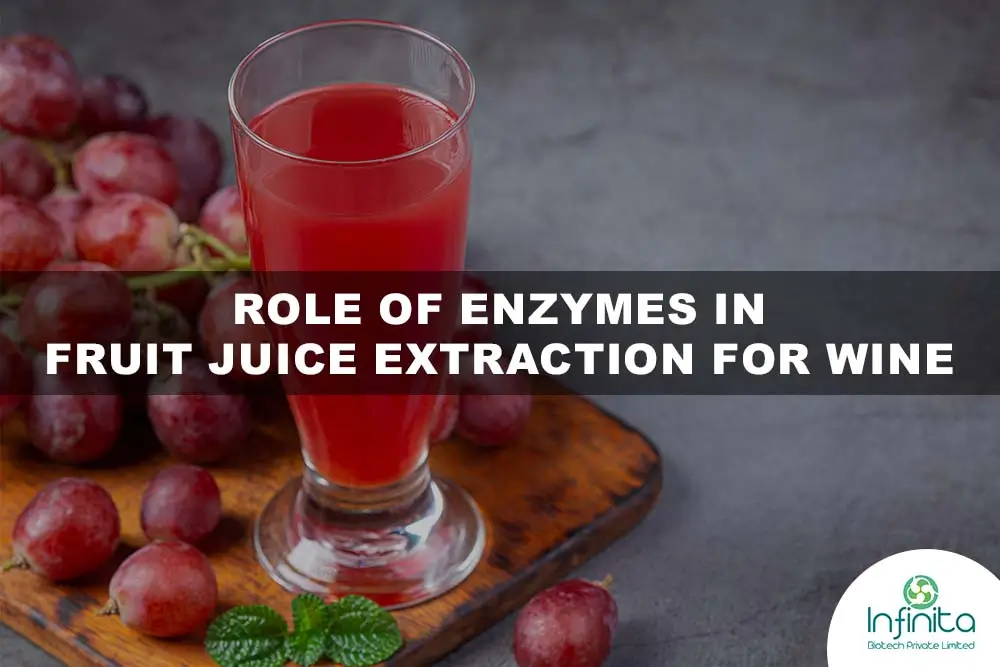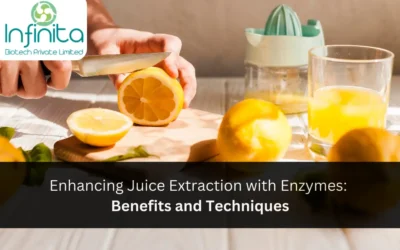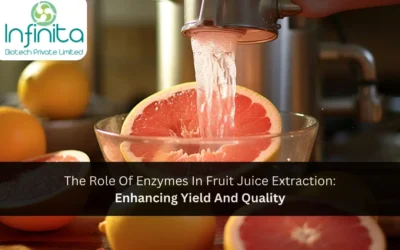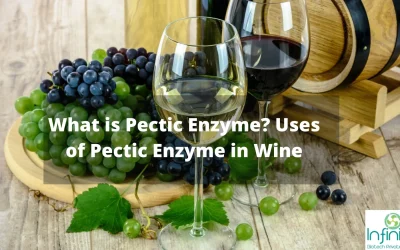The winemaking process involves the use of many enzymes. This is the most natural way of making an alcoholic beverage. Wine gets its taste because of the breakdown process completed by the enzymes. Broadly, these enzymes used to make wine belong to the Enological enzyme family. They are known to improve taste, enhance aroma and block malolactic fermentation (a chemical process where malic acid converts into lactic acid and then cO2). Talking about enzymes, they are an essential part of living organisms. Usually a form of protein, these enzymes are used to speed up the chemical process.
Fruits, especially grape juice extraction, are rich in natural enzymes, which means long chemical reactions take place with fermenting wine. Different bacteria, fungi and yeasts are responsible for such enzyme formation. Later these play an important part in changing the fruit juice extraction into wine.
How do Enzymes Affect Winemaking?
The production of wine or any alcoholic beverage is a result of an enzymatic process. The sugar or starch is broken down and converted into alcohol. This natural process gets inhibited by higher levels of pH and SO2 (sulphur dioxide). Winemaking is a long process that involves fermentation and many changes in fruit juice extraction.
Initially, it took months for fruit juice extractions to result in an alcoholic beverage. However, around the 1970s the worldwide conditions changed and people started using commercial enzymes to produce the wine. This ultimately resulted in lower residue, increased yield and a time-saving process. The role of enzymes in grape juice extraction is divided into certain categories. They are-
1. Extraction
The best enzyme from the Enological group of enzymes is pectolytic. Derived from different fungi, typically from Rhizopus, Aspergillus and Trichoderma. These fungi break down pectins and further form the best known pectolytic enzyme.
Once the grape juice extraction is completed, it is allowed to react with the pectolytic enzymes. They break into pectins and other compounds. Further, the compounds are responsible for breaking the grape cells and allowing different flavours and textures to the wine. Fruit juice extraction is the first process and it is kept natural to maintain the taste of the wine.
2. Clarification
Once the grape juice extraction is complete, it is kept aside to rest overnight. Sedimentation is another process that takes place during clarification. You are likely to notice a white coloured must before the process of fermentation takes place. Many wineries pass this fruit juice extraction through a filtration process two to three times. After this process, it removes bacteria, any impurities and musts present in the liquid. It is believed that the clearer the wine, the better the taste.
3. Filtration
After the process of filtration is completed, the grape juice extraction may release colour. There is a red coloured must on the top layer of the barrel. The reason behind this change in colour is because of the pectolytic enzymes. Wine companies make different cocktails and alcoholic beverages that use an accurate proportion and combination of these enzymes. This is aimed to provide easy filtration, clarification and taste to the wine.
Enzymes Used In Fruit Juice Extraction For Making Wine
Enzymes are an important part of the wine and alcoholic beverage industry. They make the fruit juice extraction more economical and increase the processing capacity. Some of the most commonly used enzymes in the wine industry are-
- Pectinase
- Cellulase or Hemicellulose
As mentioned earlier, these enzymes are used to accelerate grape juice extraction. They produce a better environment for the juice to break down and ferment which turns the concentrate into a better alcoholic beverage. Fruits used for such juice extractions are apples, pears, grapes, and citrus fruit like oranges, lime, berries etc.
Pectinase increases the process of wine formation, which results in the great colour of the wine, taste, fermentable sugar, flavour and aromas. Also, the enzyme reduces the time of fermentation during the production of wine. Beta-glucanase which causes grape musts and creates a finer quality of beverages. Using this enzyme is also said to provide major health benefits. At the same time, it helps in reducing any vicious health symptoms caused by the fermentation of grape juice extraction.
Also, the Botrytis-Glucan found in the pectinase results in easy fermentation, it settles and matures the wine more quickly. The wine industry buys commercially produced enzymes that have enough benefits for wine fermentation. A good quality enzyme is important for better production and enhanced quality. The fermentation process also decides the price and flavour of the wine. Better quality wine is usually pricey and is well fermented and filtered to attain great results during consumption.
Along with the commercially produced enzyme, it is important to use fine quality grapes for fruit juice extraction. Overripe grapes are not considered good for wine production as they may result in an additional pungent taste, and it is difficult to filter the beverage due to its high concentration. Using beta-glucanase is the best way for wine clarification and filtration.
How To Obtain The Best Commercial Enzymes
Though this process may look simple at the beginning, it may take the wineries months to master the right composition of enzymes and fruit juice extraction. Using the right enzymes, yeast, and fungi could optimise the further result of a winemaker. The chemistry involved in its process is complex and requires the best experts to find the right way to accelerate the production.
Infinita Biotech is a leading enzyme producer in the world. Being recognised by the government and well established scientific institute, you can trust the products of Infinita Biotech. By using the best biotechnology and advanced equipment, they have mastered the art of manufacturing and distributing the finest quality enzymes in various industries. All the enzymes are produced in an eco-friendly environment to provide exceptional results and enable stability in the final production. Also, it is easy to recycle the acids and final residue of these proteins. Top industries from food, biofuels, beverages, ethanol etc. acknowledge the specialised enzymes by this renowned biotechnology company.





